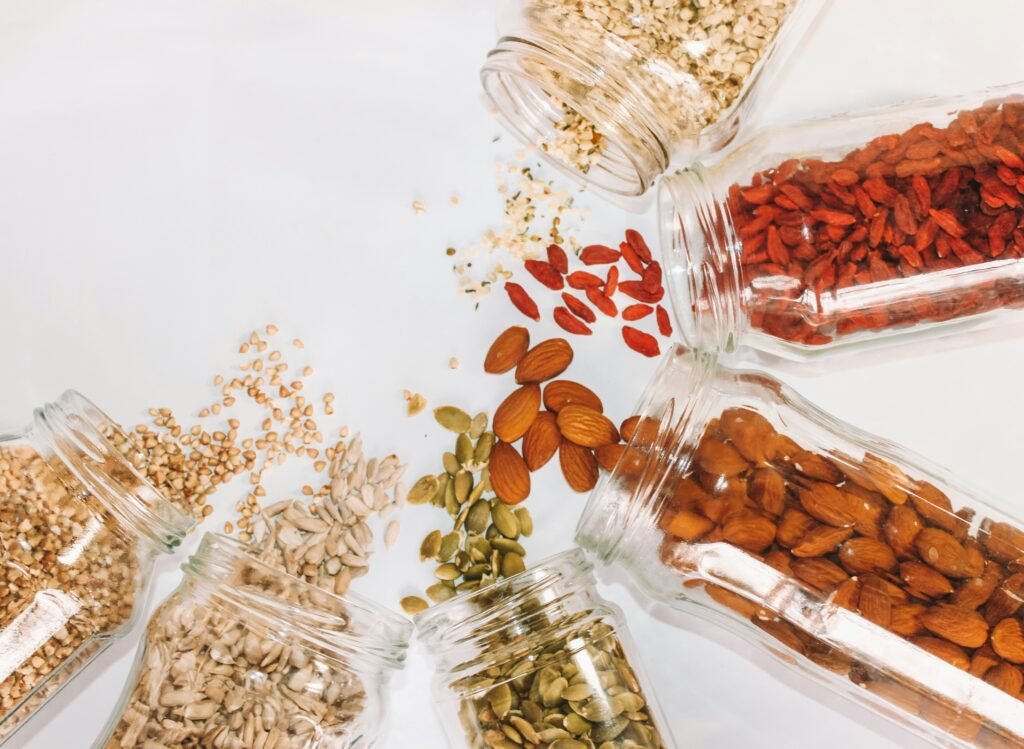In the world of nutrition, certain foods stand out for their exceptional health benefits and nutritional density. These foods, often referred to as “superfoods,” are packed with vitamins, minerals, antioxidants, and other nutrients that promote optimal health and well-being. In this blog post, we’ll explore the world of superfoods, highlighting their benefits and how you can incorporate them into your diet to nourish your body and support your overall health.
Understanding Superfoods:
Before diving into specific superfoods, let’s define what makes a food “super.” Superfoods are nutrient-rich foods that are particularly beneficial for health and well-being due to their high concentrations of vitamins, minerals, antioxidants, and other bioactive compounds. These foods are often associated with a range of health benefits, including reduced risk of chronic diseases, improved immune function, and enhanced vitality.
Tip 1: Incorporate Berries into Your Diet:
Berries, such as blueberries, strawberries, raspberries, and blackberries, are renowned for their antioxidant content and health-promoting properties. These colorful fruits are rich in vitamins, minerals, and phytochemicals that help protect cells from damage caused by free radicals and reduce inflammation in the body. Incorporating berries into your diet is easy; enjoy them fresh as a snack, add them to smoothies, or top your morning oatmeal with a handful for a nutritious boost.
Tip 2: Embrace Leafy Greens:
Leafy green vegetables, such as kale, spinach, Swiss chard, and collard greens, are nutritional powerhouses packed with vitamins, minerals, and phytonutrients. These greens are particularly rich in vitamin K, folate, and antioxidants like lutein and zeaxanthin, which support eye health and reduce the risk of chronic diseases such as heart disease and cancer. Add leafy greens to salads, soups, stir-fries, and smoothies to increase your intake of these nutrient-dense superfoods.
Tip 3: Add Nuts and Seeds to Your Meals:
Nuts and seeds are nutrient-dense foods rich in healthy fats, protein, fiber, vitamins, and minerals. Almonds, walnuts, chia seeds, flaxseeds, and hemp seeds are all excellent choices that provide a wide range of health benefits, including improved heart health, better digestion, and enhanced satiety. Sprinkle nuts and seeds on top of salads, yogurt, or oatmeal, or enjoy them as a satisfying snack on their own for a convenient and nutritious boost.

Tip 4: Include Fatty Fish in Your Diet:
Fatty fish, such as salmon, mackerel, sardines, and trout, are excellent sources of omega-3 fatty acids, essential nutrients that play a critical role in brain health, heart health, and overall well-being. Omega-3 fatty acids are known for their anti-inflammatory properties, which can help reduce the risk of chronic diseases like heart disease, arthritis, and depression. Aim to include fatty fish in your diet at least twice a week to reap the health benefits of these superfoods.
Tip 5: Incorporate Whole Grains into Your Diet:
Whole grains, such as quinoa, brown rice, oats, barley, and buckwheat, are nutritional powerhouses packed with fiber, vitamins, minerals, and antioxidants. These grains provide sustained energy, promote digestive health, and reduce the risk of chronic diseases like heart disease, diabetes, and certain cancers. Substitute refined grains with whole grains whenever possible to maximize the nutritional benefits of these superfoods.
Tip 6: Enjoy Colorful Vegetables:
Colorful vegetables, such as bell peppers, carrots, sweet potatoes, and tomatoes, are rich in vitamins, minerals, and antioxidants that promote health and vitality. These vibrant veggies are particularly high in vitamin C, beta-carotene, and other phytonutrients that support immune function, eye health, and skin health. Aim to eat a variety of colorful vegetables each day to ensure you’re getting a wide range of nutrients from these superfoods.
Tip 7: Savor the Benefits of Herbs and Spices:
Herbs and spices not only add flavor and depth to your meals but also offer a range of health benefits due to their potent antioxidant and anti-inflammatory properties. Turmeric, ginger, cinnamon, garlic, and oregano are just a few examples of superfoods in the form of herbs and spices that have been used for centuries in traditional medicine for their healing properties. Incorporate herbs and spices into your cooking to enhance both the taste and nutritional value of your meals.
Conclusion:
In conclusion, superfoods are nutrient-rich foods that offer a wide range of health benefits, from boosting immune function to reducing the risk of chronic diseases. By incorporating superfoods like berries, leafy greens, fatty fish, nuts and seeds, whole grains, colorful vegetables, and herbs and spices into your diet, you can nourish your body and support your overall health and well-being. Remember to focus on variety and balance, and enjoy the delicious flavors and textures that these superfoods have to offer. Here’s to eating well and feeling great!



